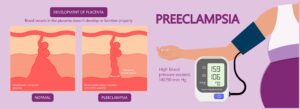The first trimester of pregnancy is a time of excitement, anticipation, and sometimes anxiety. You may be wondering what to expect, how to cope with the changes in your body and mind, and what to do to prepare for your baby’s arrival. But there are some secrets of first trimester early pregnancy that no one tells you, and they can make a big difference in your experience. Here are some of them:
Secret 1 #: You may not feel pregnant at all. Some women have no symptoms or signs of pregnancy in the first trimester, while others have nausea, fatigue, sore breasts, and mood swings. There is no right or wrong way to feel pregnant, and your symptoms may vary from day to day or week to week. Don’t worry if you don’t feel anything yet, or if you feel too much. Your body is doing its job, and your baby is growing.
Secret 2#: You may have spotting or bleeding. It is normal to have some spotting or light bleeding in the first trimester, especially after sex, a pelvic exam, or exercise. This is usually caused by the implantation of the embryo in the uterus, or by the increased blood flow to the cervix. However, if you have heavy bleeding, severe cramps, or sharp pain, you should call your doctor right away, as these could be signs of a miscarriage or an ectopic pregnancy.
Secret 3#: You may have food aversions or cravings. Your sense of taste and smell may change during pregnancy, and you may find yourself repulsed by foods you used to love, or craving foods you never liked before. This is normal and harmless, as long as you eat a balanced diet and avoid foods that are unsafe for pregnancy, such as raw meat, fish with high mercury levels, unpasteurized dairy products, and alcohol. You may also have a metallic taste in your mouth, which can be relieved by chewing gum or drinking water.
Secret 4#: You may have vivid dreams or nightmares. Pregnancy hormones can affect your sleep quality and your dreams. You may have more vivid, intense, or bizarre dreams than usual, or you may have nightmares about losing your baby, giving birth, or other fears. These are common and normal, and they do not mean anything bad will happen. Try to relax before bed, avoid caffeine and spicy foods, and talk to your partner or a friend about your dreams if they bother you.
Secret 5#: You may have mood swings or emotional changes. Pregnancy hormones can also affect your mood and emotions. You may feel happy, sad, angry, anxious, or all of the above in a short span of time. You may cry for no reason or laugh at inappropriate moments. You may also feel more sensitive, irritable, or insecure than usual. These are normal and temporary, and they do not mean you are going crazy or that you are not ready to be a mother. Try to express your feelings to someone you trust, practice self-care activities that make you feel good, and seek professional help if you feel depressed or overwhelmed.
“Self-care paves the way for a healthier and happier future for you and your little one. So, listen to your body, cherish every moment, and let the glow of motherhood radiate from within. Here’s to a beautiful beginning!”
To Read More




